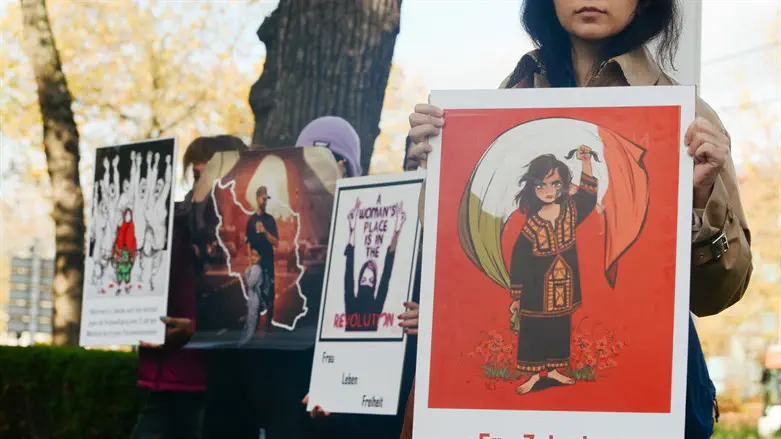
An Iranian journalist who was handed a two-year jail sentence after interviewing the father of the woman whose custody death sparked months of protests said on Sunday she had been released from prison, AFP reported.
After her release from Tehran's Evin prison, Nazila Maroufian defiantly posted a picture of herself on social media without a headscarf, flouting the Islamic Republic's strict dress code for women.
"Don't accept slavery, you deserve the best," she wrote Twitter and Instagram. The picture showed her clutching flowers in one hand with her other hand raised in a victory sign.
Maroufian, whose age is given by Persian media outside Iran as 23, in October published an interview on the Mostaghel Online news site with Amjad Amini, father of Mahsa Amini, whose death in custody last September after she allegedly violated the dress rules sparked months of protests.
In the interview, Amjad Amini accused authorities of lying about the circumstances of his daughter's death.
Maroufian, a Tehran-based journalist but from Amini's hometown of Saqez in Kurdistan province, was first arrested in November.
She was later released but in January said she had been sentenced to two years in jail, suspended for five years, on charges of propaganda against the system and spreading false news. She was reportedly again ordered back to Evin prison in early July.
A government crackdown on the demonstrations which broke out after Amini’s death resulted in hundreds of people being killed, including dozens of security personnel, and thousands arrested.
Iran has also cracked down on journalists who reported about Amini’s case. The two women journalists who helped to bring the story to the world's attention have now spent almost a year in Evin after being arrested in September.
Iranian authorities have questioned or arrested over 90 journalists since the nationwide protests last year.
The protests largely died down earlier this year following the crackdown. In July, Iranian authorities announced a new campaign to force women to wear the Islamic headscarf. Following the announcement, morality police returned to the streets.
In April, Iranian authorities announced that cameras would be installed in public places and thoroughfares to identify and penalize unveiled women.
